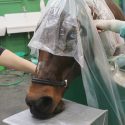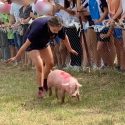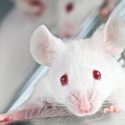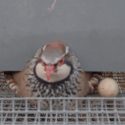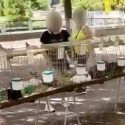In Ariège, bears are being shot at to make them run away…
In Ariège, bears are being shot at to make them run away…
26.07.2022
Ariège
In Ariège, bears are being shot at to make them run away… Wildlife
To combat bear scaring in the Pyrenees, we are attending the emergency interim hearing at the Toulouse Administrative Tribunal on 27 July. One Voice is requesting the cancellation of the Ariège prefectural decree. The hearing relating to our plea at the State Council on the same subject has not yet been arranged.
After having reintroduced bears where farmers had made sure they had disappeared, the executive authorised prefects to organise warning shots, essentially to scare them, but which could also injure them. We are fighting the Ministries of Ecology and Agriculture at the State Council and the Ariège Prefecture at the Toulouse Administrative Tribunal. It is inconceivable to have made bears almost disappear from this area to then bring them from abroad and in turn make their lives impossible.
Various levels of the decrees and pleas are intertwined
Since 2019, the Ministries for the Ecological Transition and Agriculture have authorised the implementation of measures to scare brown bears in the Pyrenees with decrees. These measures were primarily authorised on a trial basis from 2019 to 2021, before being made permanent by a recent ministerial decree issued on 20 June 2022. On the basis of this decree, the prefects can issue bear scaring authorisations each year from now on throughout the entirety of the Pyrenean ranges.
Two types of bear scaring that reduce their natural territory bit by bit
There are two types of scaring measures: simple scaring which consists of the use of olfactory, sound, and light methods for scaring, and more intense scaring which consists of non-lethal shots using a rifle loaded with sound cartridges or rubber ammunition.
These measures present significant risks to bears: injuries caused by the rubber missiles, auditory injuries caused by sound devices, separation of the cubs from their mothers while they are escaping, miscarriages linked to stress, a risk of drifting due to the insufficient supervision of sheepdogs and hunters during operations. In short, an explosive combination.
Among other things, the implementation of these shots leads to bears being systematically pushed out of areas that are their natural habitat, which is decreasing extensively, little by little. The animals are therefore persuaded not to frequent essential parts of their natural area of distribution in the long term!
Protected animals for a good reason!
Today, brown bears are protected animals under European and French laws. The last count reported around 70 individuals in 2021, while the minimum threshold of viability for the species is estimated at 110 individuals. Scaring them “to protect herds” (which are destined for the abattoir in any case…) is nonsense anyway, seeing as there are so few of them…
Administrative jurisdiction that has already broken government decisions. And yet…
The State Council has already annulled the decrees issued in 2019 and 2020 implementing scaring measures that presented a risk to the improvement of the state of the ursine species in the Pyrenees mountain range… However, the Ministries for the Ecological Transition and Agriculture have not drawn conclusions from these annulments and have perpetuated the system, allowing prefects to authorise the implementation of scaring measures with the decree of 20 June 2022. One Voice is therefore attacking this decree from the State Council in order to get it annulled once again. The hearing has not yet been set.
Based on this ministerial decree, the Ariège Prefect has authorised grazing groups to resort to scaring measures (at least seven to date), which can therefore currently be implemented on the Pyrenees ranges. We have referred to the Toulouse Administrative Court in order to obtain an urgent suspension of these authorisations.
Our view is that these authorisations are illegal because these scaring measures seriously threaten the state of the ursine population and that, as for the wolves, alternative, more effective solutions exist to protect herds (by combining the presence of shepherds, protection dogs, and electric night-time enclosures for example). Incidentally, the Conseil national de la protection de la nature (CNPN) [National Council for the Protection of Nature] shares this opinion, and announced this during a meeting on 15 March 2022. For them, the effectiveness of scaring is not proven over time and it “is possible to ensure cohabitation between bears and pastoral activities with herds being well protected”.
While waiting for the hearing at the State Council, we will consequently be at the Toulouse Administrative Tribunal on 27 July facing the Ariège Prefect to defend the bears in our mountain ranges.
Translated from the French by Joely Justice





